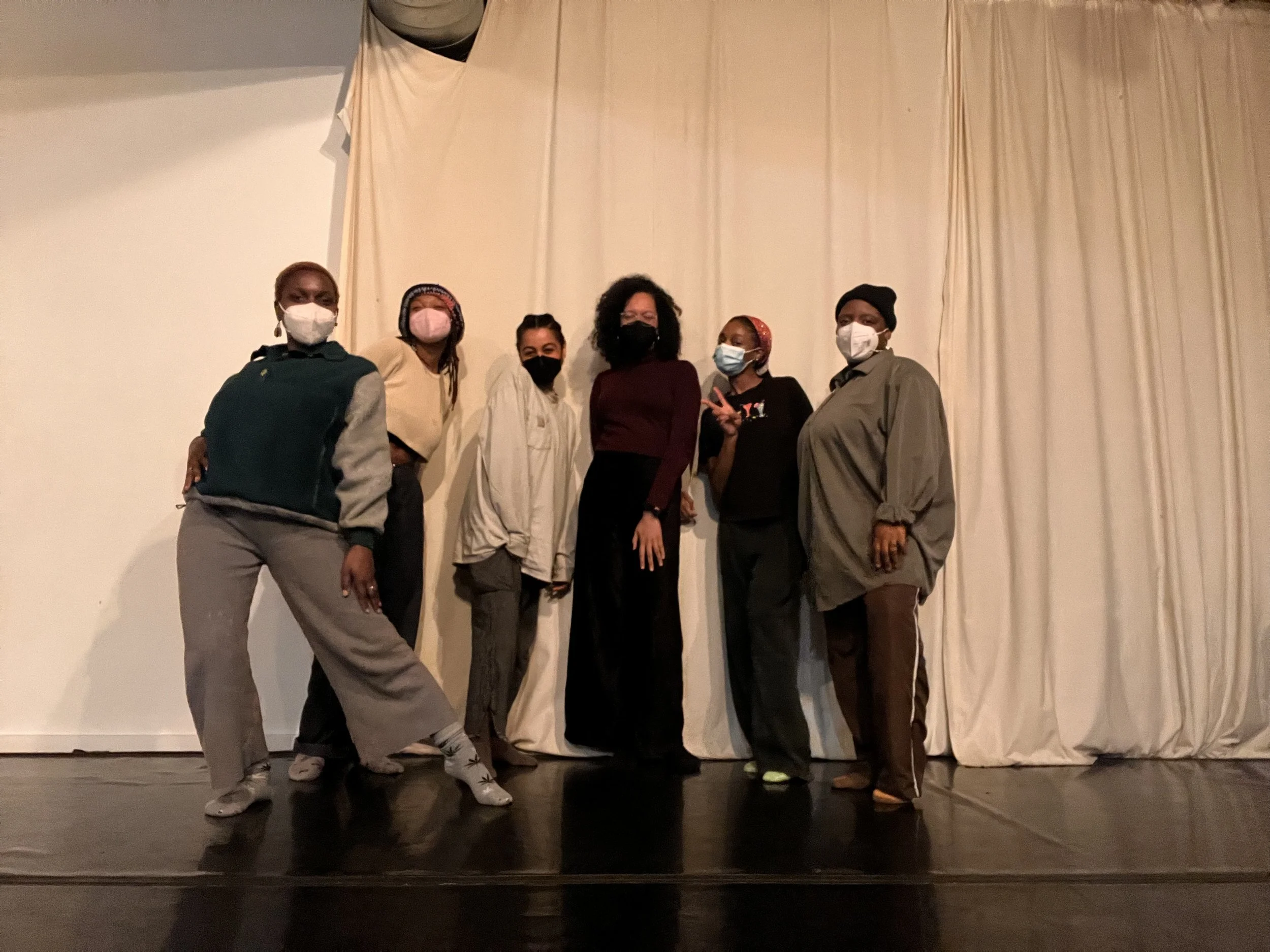The Future is Us Group Residency








The Future Is Us (TFIU) Group Residency (2021-2023) is a project where participants and facilitators engage in somatic pedagogy and Utopic Imagining pedagogy as creative healing practices. A pedagogy developed by Laila Islam and Reva Rutherford, Utopic Imagining is a practice where one imagines, designs, and creates alter-realities that better serve Black and Brown communities. Utopic Imagining is an Afrofuturist method of speculating the past, present, and future, imagining a utopia, and designing technologies that support one’s envisioned utopia. Somatic (soma) pedagogy offers resistance to our violent capitalist environment by encouraging people to assess their bodily relationship with capitalism and how it manifests socially in our interpersonal relationships. Through therapeutic group practices, soma encourages deeper relationships with one's individual body as well as the collective body, ultimately embodying a healing state. Throughout this project, participants are encouraged to create a conscious relationship with their bodies, their communities, and their environment through speculative and imaginative practices. Exercises include group breathwork and writing, open discussions and presentations, collaging, and group art-making that is body-focused and play-centered.
The first iteration of this project resulted in a virtual presentation. Visit somaticutopicimagining.com to view the first exhibition of The Future is Us Group Residency.
In September 2022 we selected a cohort of 9 Black and Brown young-adult creatives for a second iteration of TFIU Group Residency. This pool of young artists, writers, and theorists are individuals interested in creating art as a group, participating in healing exercises such as meditations and group writing reflections, and building an intimate connection with their cohort. By the end of the residency experience, participants will be introduced to healing creative practices such as Somatic Pedagogy and Afro-futurist methods of speculation, design, and invention. Participants will use these practices and experiences as a form of research and knowledge creation to collectively envision a utopia to then design and create inventions (resources, systems, new alternative paradigms, etc.) that support their envisioned utopia. We want to empower young adults with creative tools that support effective change and movements towards liberation from oppression.
Group Residency MTG 3: Black Imagination as a Tool for Survival
Group Residency Facilitator Reva Rutherford shares how Black mythology and imagination has been used as a means of survival and creative expression. The facilitator also shares how we can incorporate these practices in our lives today and leads the group in an imaginative meditation.
Group Residency MTG 2: Soma + Art Making
Group Facilitator Rohaan Unvala sharing a presentation on a more expansive understanding of the body and how we can incorporate somatic practices in our art making/creative practices.
Group Residency Mtg 1: Soma + Collective Liberation
Group Facilitator Laila Islam sharing an introductory presentation on somatic practices and a more expansive understanding of our body and environment.

